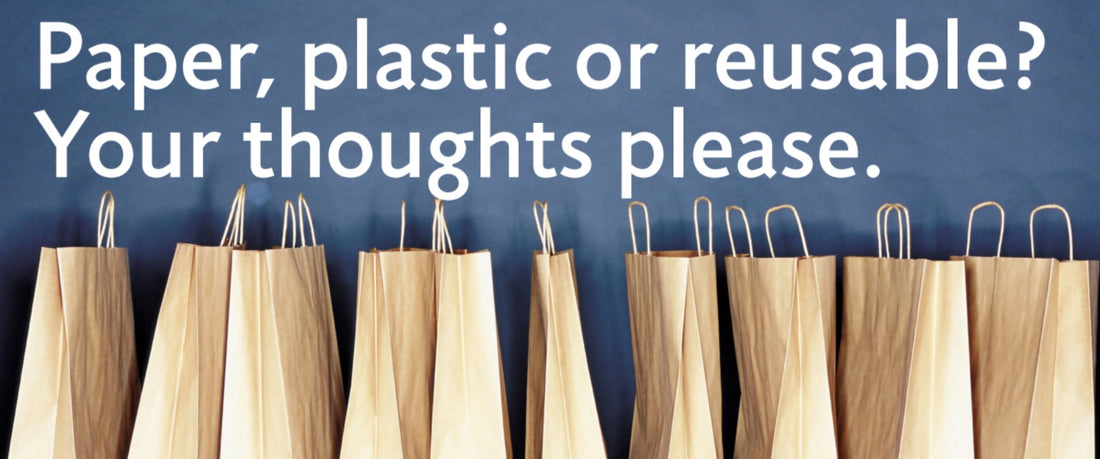
We have a dilemma with the bags we put your purchases in and we need your help! We would love you to take part in a conversation with us on the plastic vs paper vs reusable debate.
Please do email your thoughts to me at: matthew@hansfordsmenswear.co.uk or comment here on our blog.
As you know, for years Hansfords has focused on ensuring its high quality products are sustainably sourced and takes great care to uncover every manufacturing detail of an item before it is offered in the shop. However, we have had a number of comments from customers about our use of plastic bags for purchases.
The trend is undoubtedly towards ‘no plastic’ but is this definitely the correct way forward? Paper bags are thought of as the most environmentally friendly because they take less time to decompose than plastic but are they suitable for carrying home your Hansfords’ purchases? Our concern is their lack of durability – especially in the typical British wet weather. In addition, millions of trees need to be cut down in order to facilitate the manufacture of paper bags and millions of gallons of water and bleach are used to prepare the pulp – both of which have a significant impact on the environment.
Did you know that it takes around four times more energy to manufacture paper than it does to manufacture plastic and, at the end of the user cycle, paper is 70% more of an air pollutant than plastic? It is also estimated that paper pollutes soil and underground water 50% more than plastic. So, are plastic bags a better option? There is no doubt that plastic bags are very effective as a carrier bag. They are also relatively durable and can be used more than once. The process of recycling plastic bags takes around 91% less energy compared to the process of recycling paper bags.
However, it is estimated that only 1-3% of plastic bags are recycled compared to 10-15% of paper bags. It is also thought that between half a billion and one trillion plastic bags are consumed each year worldwide. Experts estimate plastic bags take around 20 and 1000 years to decompose. It is well documented that plastic bags are hazardous to living creatures on land and water.
Are reusable bags, therefore, the answer? These may not be the most eco-friendly option to produce but they can be used multiple times. The amount of energy used to produce reusable bags depends on the material but the prolonged use of the bag may compensate for the energy consumed during production. Reusable shopping bags may not be ideal for carrying meat and vegetables as they could harbour bacteria but for items such as clothing, they seem to make sense. The use of a recyclable bag is a good way to get users into the mindset of reusing and recycling.
We would love to hear your thoughts. If we offer you a plastic reusable bag, would you be able to make use of it for other shopping? Could we incentivise you with extra Reward Points to bring the bag back to reuse when you return to Hansfords?

